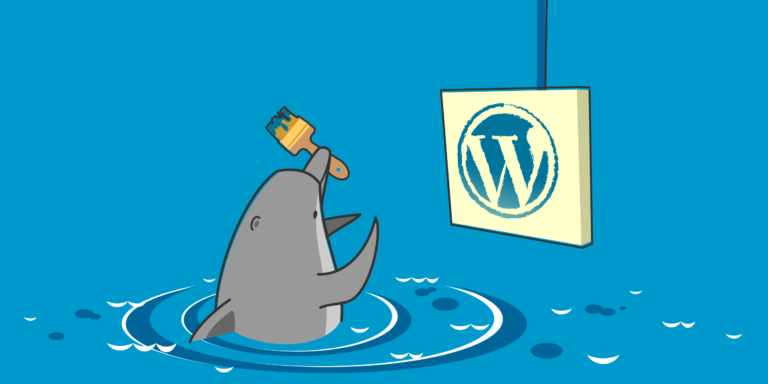When it comes to PHP web hosting, there can be various common problems that website owners may encounter. These issues can affect the performance, compatibility, security, database connectivity, and memory usage of PHP-based websites. However, with the right solutions, these problems can be effectively addressed, ensuring smooth functioning and optimal performance of your website.
Some of the common problems in PHP web hosting include:
- Slow Website Performance: Slow loading times can frustrate visitors and negatively impact user experience. This can be caused by factors such as inefficient coding, excessive server load, or limited server resources.
- Compatibility Issues: PHP websites may experience compatibility issues with different versions of PHP or specific software configurations. This can result in errors or malfunctions, affecting the website’s functionality.
- Security Vulnerabilities: PHP websites can be prone to security vulnerabilities, making them targets for hacking or malware attacks. These vulnerabilities can arise from outdated software versions, weak access controls, or poorly written code.
- Database Connection Errors: A stable and secure connection to the database is crucial for PHP websites. Database connection errors can occur due to misconfigurations, incorrect credentials, or server-side issues.
- Memory Limit Issues: PHP scripts may require a certain amount of memory to execute properly. If the PHP memory limit is set too low, it can lead to script failures or incomplete operations.
To address these common PHP web hosting problems, you can implement the following solutions:
- Optimize Website and Database: Improve website performance by optimizing code, compressing files, and reducing the size of images. optimize and maintain the database by removing unnecessary data and optimizing queries.
- Keep PHP Versions Up to Date: Stay updated with the latest stable release of PHP to ensure compatibility, security patches, and access to new features. Regularly update your website’s PHP version to take advantage of improvements and bug fixes.
- Implement Security Measures: Enhance the security of your PHP website by using secure coding practices, regularly updating software and plugins, using secure protocols (HTTPS), and implementing robust firewall and intrusion detection systems.
- Troubleshoot Database Connection Issues: Check database connection settings, verify credentials, and ensure that the database server is running correctly. Contact your hosting provider or database administrator for assistance if necessary.
- Adjust PHP Memory Limit: If memory limit issues persist, increase the PHP memory limit in the server configuration or .htaccess file. This will provide sufficient memory for PHP scripts to execute without errors.
Choosing the right PHP web hosting provider is also crucial for ensuring a reliable and optimized hosting environment. Look for a provider that offers excellent performance, uptime guarantees, 24/7 technical support, robust security measures, and scalability options.
By understanding these common problems and implementing the appropriate solutions, you can ensure a smooth and efficient PHP web hosting experience.
1. Slow website performance: One common problem in PHP web hosting is slow website performance. This can be addressed by optimizing the website and database to improve loading speed.
2. Compatibility issues: Another common problem is compatibility issues with PHP versions and server configurations. Keeping PHP versions up to date can help prevent compatibility problems.
3. Security vulnerabilities: PHP web hosting can be susceptible to security vulnerabilities. Implementing security measures such as using secure coding practices and regularly updating security patches can help protect against potential threats.
4. Database connection errors: PHP web hosting can sometimes encounter database connection errors. Troubleshooting and resolving these issues are essential to ensure the smooth functioning of the website.
5. Memory limit issues: Memory limit problems can arise in PHP web hosting, affecting the performance of the website. Adjusting the PHP memory limit can help alleviate these issues.
- Slow website performance can be improved through website and database optimization.
- Keeping PHP versions up to date helps prevent compatibility issues.
- Implementing security measures is crucial to address security vulnerabilities.
- Troubleshooting and resolving database connection errors is essential for website functioning.
- Adjusting PHP memory limit helps resolve memory limit issues.
Common Problems in PHP Web Hosting
When it comes to PHP web hosting, users often encounter common problems. These issues can be frustrating, but fortunately, there are solutions available. Here are some of the most common problems you may face and how to resolve them:
When facing these common problems in PHP web hosting, it is essential to proactively identify and resolve them. This ensures a smooth browsing experience for your users and helps maintain the functionality of your website.
Solutions to Common PHP Web Hosting Problems
When it comes to PHP web hosting, common problems can arise that can hinder the performance and functionality of your website. There are Solutions to Common PHP Web Hosting Problems that can help you overcome them and ensure smooth operations.
To ensure a smooth PHP web hosting experience, it is crucial to address these common problems promptly. Implementing these Solutions to Common PHP Web Hosting Problems can help optimize your website’s performance, enhance security, and prevent any potential issues.
Choosing the Right PHP Web Hosting Provider
When it comes to choosing the right PHP web hosting provider, there are several factors to consider. One important factor is to compare pricing plans. It is crucial to look for providers that offer competitive prices within your budget.
Another important aspect to assess is the server performance. You need to ensure that the hosting provider has reliable and high-performance servers. It is advisable to look for guarantees on uptime and response time to ensure optimal performance for your website.
Compatibility is also a key consideration. You should check if the hosting provider supports the PHP version that you are using or planning to use for your website. This will ensure compatibility and smooth functioning of your website.
Storage and bandwidth are also vital. It is essential to evaluate the storage and bandwidth requirements of your website. Choose a hosting provider that offers sufficient disk space and bandwidth to accommodate your website’s needs.
Customer support is another crucial aspect to review. Look for a hosting provider that offers 24/7 customer support. This can be extremely important in case of any technical issues or downtime with your website.
Scalability is an important consideration if you anticipate your website to grow in the future. Choose a hosting provider that offers scalability options, allowing you to easily upgrade your hosting plan as your website’s needs expand.
Security features should not be overlooked. Ensure that the hosting provider offers robust security measures such as SSL certificates, firewalls, and malware scans to protect your website and sensitive data.
It is always beneficial to read customer reviews and do thorough research. This will provide you with insights into the experiences and satisfaction levels of other customers with different PHP web hosting providers.
Lastly, consider any additional features or tools offered by the hosting provider. Features like one-click installs, website builders, or backup options can enhance the functionality and ease of managing your website.
By considering all these factors, you can make an informed decision when choosing the right PHP web hosting provider.
Frequently Asked Questions
1. What are some common web hosting problems and their solutions?
– Some common web hosting problems include downtime and server errors, slow loading speeds, security and PCI compliance issues, limited resources, and lack of help and support.
– To address these issues, choose a web hosting provider with high uptime guarantee, optimize website load times, ensure secure hosting and SSL certificates, upgrade to a dedicated server or VPS for more resources, and select a provider with reliable customer support.
2. How can I improve the performance of my PHP website?
– To improve the performance of a PHP website, consider using a CDN service to deliver static content, limit the use of dynamic content, patch the platform to stay up-to-date with current technology, enable caching, and optimize the website’s load times using tools like Google PageSpeed Insights.
3. What security measures should I consider for my PHP web hosting?
– When it comes to security, choose a web hosting provider that offers secure hosting and SSL certificates. Make sure they have regular maintenance windows, provide secure file transfer protocol (SFTP), and can answer your questions about SSL. Additionally, ask for the hosting provider’s Attestation of Compliance (AoC) and check their reputation and expertise in security.
4. How should I choose a solid web hosting provider for a small business website?
– When selecting a web hosting provider for a small business website, consider factors such as uptime guarantee, optimized environments for different applications, scalable solutions for growth, regular downtime, and reliable customer support. It’s important to weigh the features and services provided by various providers to determine the best value for money.
5. What are the consequences of having poor security in web hosting?
– Poor security or lack of PCI compliance can lead to security threats, such as SQL injection attacks and cross-site scripting. It can also harm the reputation and trust of end users, as well as negatively impact ranking well in search engines like Google. It is essential to prioritize security measures and choose a web hosting provider with a secure by design approach.
6. Is cost the most important factor to consider when choosing a web hosting provider?
– Cost should be considered in terms of value, rather than just focusing on the price. While unmanaged hosting may be cheaper than managed hosting, it may offer fewer services. It is important to assess the features, support, and reliability provided by hosting providers to determine the best value for money for your specific needs.

